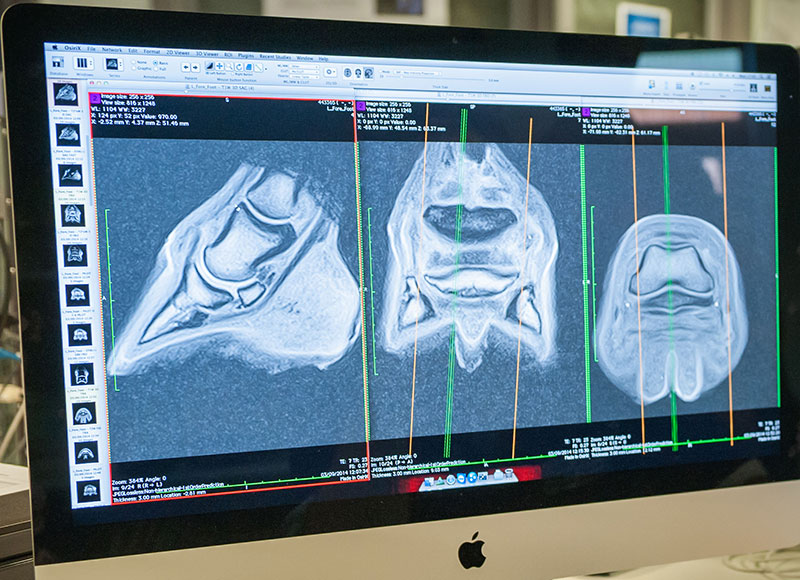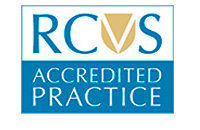24 hour contact: 01707 666297
The RVC’s Equine Locomotor Research Course expands to the USA
The RVC's Graduate Diploma in Equine Locomotor Research (Grad Dip ELR) is this year expanding to the USA to offer US-based professional farriers the chance to gain the necessary skill-set to produce original research, increase the evidence base behind farriery, and enhance equine welfare.
The Grad Dip ELR is a UK Higher Education Level 6 course, which can be taken over a minimum of two and a maximum of five years. The course was launched in the UK by the RVC last year, and after a successful inaugural year, the RVC is expanding the course to the USA. The course is divided into two distinct sections, Contemporary Study Skills and Applied Equine Locomotion. The course will be delivered using a variety of methods including webinars, podcasts and face-to-face learning sessions on weekends to facilitate the participation of the busy practitioner. The US-based 2018 course will be custom tailored to the US-based farrier, with the residential weekends being held at the University of Pennsylvania’s New Bolton Center.
Admission will be open to all farriers who can demonstrate that they have farriery training, practical experience with advanced footcare and can provide evidence of reflective practice. The RVC is the UK’s largest and oldest veterinary school and has a substantially greater number of students and a more diverse student body than any other UK vet school. Research at the RVC is of international quality and the RVC’s Structure and Motion Laboratory is home to the largest research group and most extensive facilities dedicated to animal locomotor biomechanics with the horse at its centre. The clinical facilities combined with the expertise of the equine group provides the ideal ground for this course.

The course will be led by Dr Renate Weller, Professor in Comparative Imaging and Biomechanics, and by Dr Thilo Pfau is Senior Lecturer in Bioengineering and will be supported by other members of the Structure and Motion lab, the Equine Referral Hospital and the epidemiology group. They will be joined by the RVC’s Learning Development Manager, Dr Rachel Davis, and her team who have vast experience with vocational learners returning to education.
Professor Renate Weller said: “I am super excited by this course. As an equine clinician I cannot emphasise the importance of farriery in the prevention and treatment of lameness in horses enough, and as a researcher I am excited to be able to work with people who have the practical experience and knowledge to generate scientific evidence for farriery strategies.
“It is a historic moment for the RVC where after 225 years we are welcoming back farriers and I am very honoured to be allowed to lead this endeavour. The most common problem in equine practice is lameness and I am 100% sure we will see great research coming out of this that will help us to work in a team to improve the welfare of the horse.”
Thomas Smith, a student from the 2017 intake of the Grad Dip ELR, added: “The course are has really opened my eyes to learning in a way that I did not ever consider. I have been completely overwhelmed by the sheer amount of resources being on the course makes available in both the information and facilities at the RVC, as well the expert minds there. The online learning has also been far more positive that I could have imagined and has created almost a community spirit in the learning forums between us farriers on the course.”.
Press Office Contact
Uche Graves / Zoe Chadwick
T: 0800 368 9520
E: uche.graves@plmr.co.uk / zoe.chadwick@plmr.co.uk
Notes to Editors
The Royal Veterinary College (RVC) is the UK's largest and longest established independent veterinary school and is a constituent College of the University of London. The RVC offers undergraduate, postgraduate and CPD programmes in veterinary medicine, veterinary nursing and biological sciences, being ranked in the top 10 universities nationally for biosciences degrees. It is currently the only veterinary school in the world to hold full accreditation from AVMA, EAEVE, RCVS and AVBC.
A research-led institution, in the most recent Research Excellence Framework (REF2014) the RVC maintained its position as the top HEFCE funded veterinary focused research institution.
The RVC also provides animal owners and the veterinary profession with access to expert veterinary care and advice through its teaching hospitals; the Beaumont Sainsbury Animal Hospital in central London, the Queen Mother Hospital for Animals (Europe's largest small animal referral centre), the Equine Referral Hospital, and the Farm Animal Clinical Centre located at the Hertfordshire campus.
RVC Press Release 26 June 2017
See other Press Releases.

